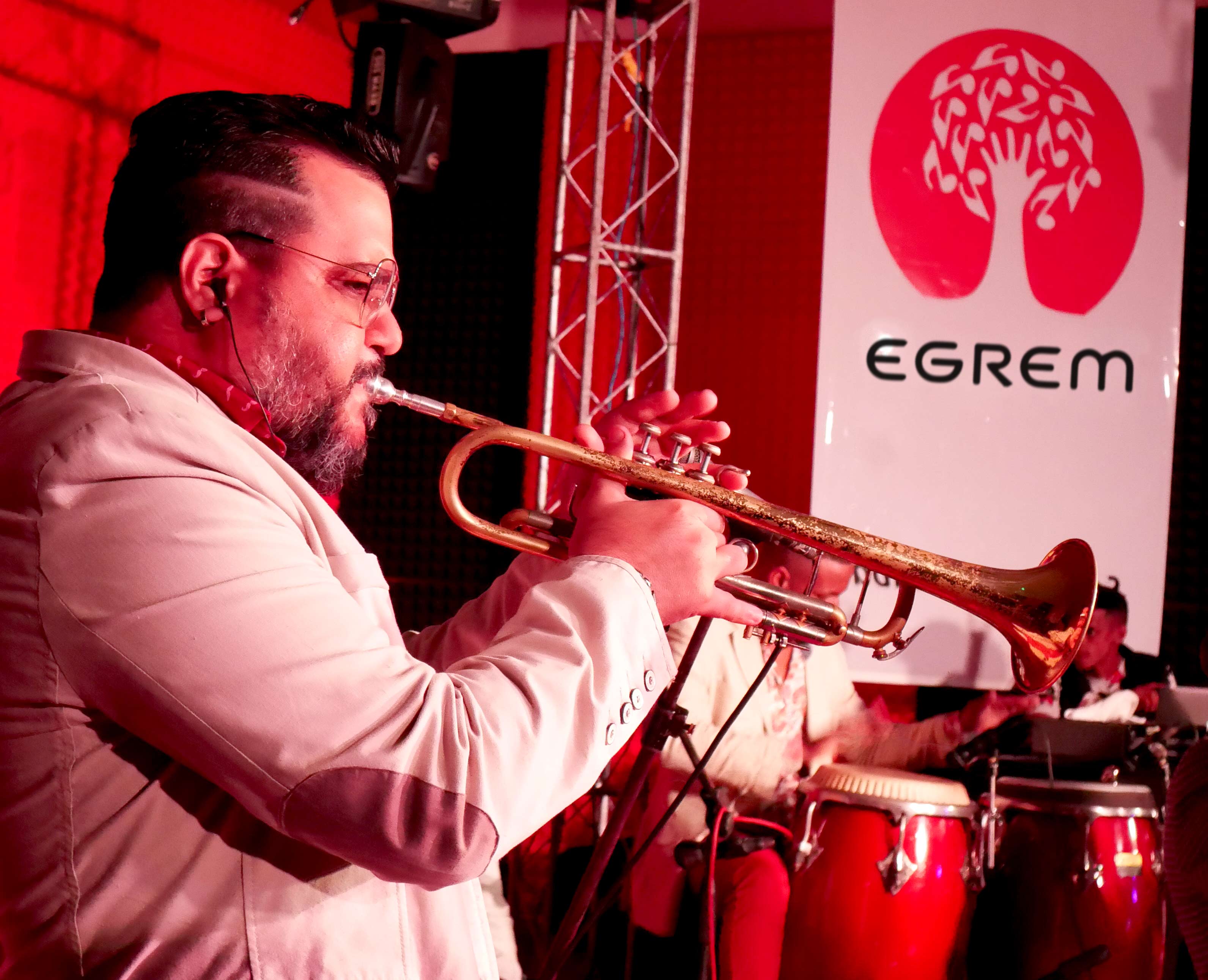“I fell in love with Son”
He developed all his artistic life hand by hand with traditional music. Septeto Turquino, Eliades Ochoa and Cuarteto Patria, and currently Septeto Santiaguero, transformed him in an experimented trumpeter, defender of traditional Cuban music.
In 2012 he won his first Latin Grammy with the band of Eliades Ochoa and gets two others for his job with Septeto Santiaguero. Graduated in the school of art Regino Eladio Boti (Guantanamo 1987) and in the Conservatory. Esteban Salas (Santiago de Cuba 1996), he is the first musician of his family.
“I fell in love with Son. I grew up in a neighborhood with a lot of haitian influence, even if I live in Santiago de Cuba now, my childhood signed a very good part of my attitude for music.”
How does Septeto Santiaguero integrate your artistic career?
I have always liked to make traditional music. I worked seven years with Septeto Turquino, then 8 years with Eliades Ochoa since I decided to integrate Septeto Santiaguero. Each band is a master school and has its way to do, play music and adaptation is fundamental”.
What did you learn from Septeto Santiaguero?
I’ve improved the ad-lib performance, where the musician shows what he could really do, also the screening and the sound because this group “suena macho” (it plays hard). I like it very much because each presentation is a challenge and allows me to grow up as a musician”.
Dragonì is an artist who doesn’t like interviews, is much more easy to start a conversation with him, after a few drinks he tells about his five trumpets that he keep at home, about his dreams of looking at his children be musicians and about the hours that he spend warming-up before every concert. Even he has very little free time, he has been teaching as a professor in the Conservatoire Esteban Salas.
The first thing I teach to my students is the need of sacrifice when you choose to be a musician. This is a difficult instrument and musicians must go faster because while other young people are having fun, the musician must be studying, and he has to take conscience that this sacrifice helps to see results in the future. Anyway I think that there are very talented young people and we’ll have good trumpeters very soon”.
As soon as he can, he dances on the stage, he looks up the percussionists and he is always observant about audience reactions. “To me there is no difference between stages. I respect all kind of audience; I play with the same energy in Paris, or in any neighborhood or community in Cuba. My desire is that the audience enjoys the music”.

